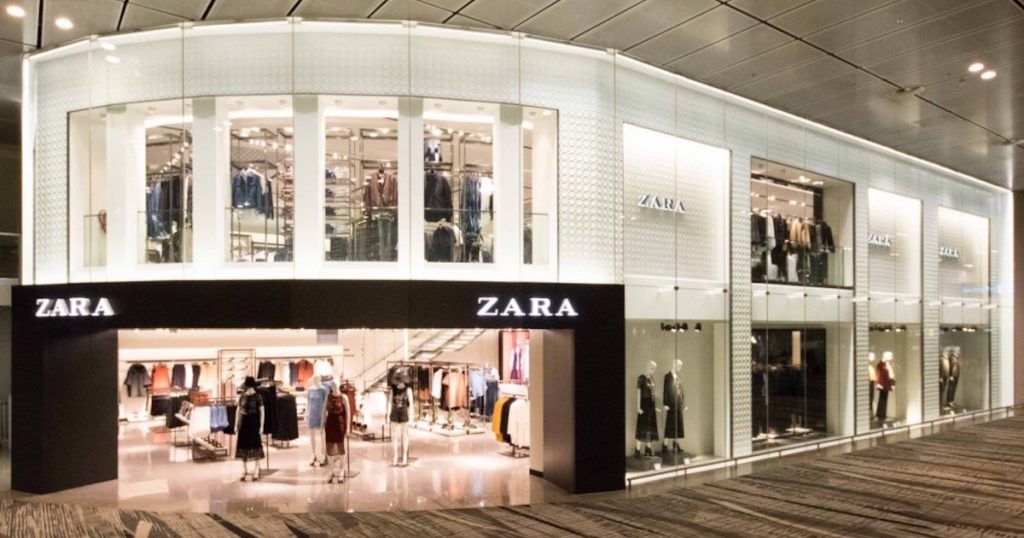Spanish multinational clothing company Inditex — which is also the parent company of Zara and other fashion brands such as Massimo Dutti, Pull & Bear and Bershka — announced today that it will close up to 1,200 smaller stores by 2021.
This is following the firm’s first loss after the Covid-19 crisis forced it to suspend operations at most of its shops.
Inditex had recorded a net loss of €409 million in the February to April first quarter as only 965 of its stores were open during the lockdown period.
Moving forward, Inditex said that it will shift its focus on its bigger stores, adding that it would expand its shop floor space by about 2.5 per cent a year in 2020 to 2022.
Ramping Up On Online Sales
It also announced plans to double down on e-commerce with a €$1 billion investment over the next three years.
Its online sales growth had made up for some of the sales weakness, said Inditex. Online sales rose by 50 per cent year-on-year during the quarter, and were up 95 per cent year-on-year in April.
The company added that it expects online sales to account for a quarter of its business by 2022, compared to 14 per cent now.
It is also spending €1.7 billion on upgrading its stores to become more integrated with its online platform by “deploying advanced technology solutions,” it said.
“The overriding goal between now and 2022 is to speed up full implementation of our integrated store concept, driven by the notion of being able to offer our customers uninterrupted service no matter where they find themselves, on any device and at any time of the day,” CEO Pablo Isla said in a statement.
Brick-and-mortar retailers around the world have been forced to re-evaluate their business models during the pandemic, amid expectations of lower footfall in stores for a significant amount of time.
Inditex said it would accelerate its push to sell more clothes online as it seeks to fend off the challenge of high street competitors such as H&M and Uniqlo owner Fast Retailing, as well as newer online-only rivals including Asos and Boohoo in the UK which have prospered during lockdown.
Featured Image Credit: The Honeycombers
Also Read: COVID-19: When S’pore Malls Reopen, Expect To See Disinfection Robots And Contactless Lifts










